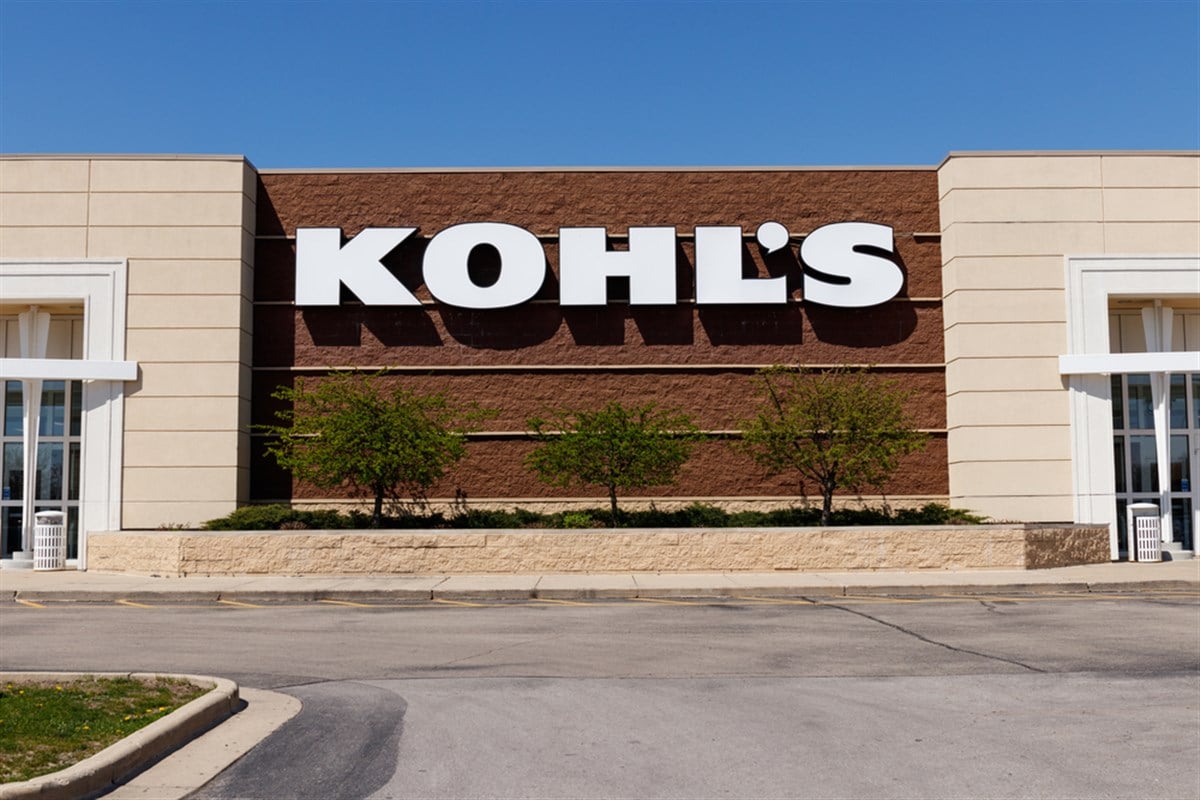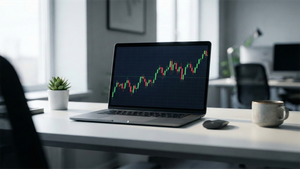Financial News
From Discount to Discretionary: A Retail Sector Pulse Check

The current economic environment is characterized by a complex and volatile mix of inflation, shifting consumer preferences and persistent whispers of a potential recession. The earnings reports from major retail sector players reflect the financial performance of each company, but collectively, they reveal insight into the state of the consumer and, by extension, the overall economy.
The numbers tell a story of cautious spending, shifting priorities and a discerning eye for consumer value. This market narrative is intricately woven with the anxieties of inflation, potential recessionary fears and evolving consumption habits. Sector analysts use these earnings reports to gain crucial insights into the retail sector as an investment opportunity and to analyze the broader economic sector's financial health.
Discretionary Spending Examined: Kohl's Performance
Department stores traditionally rely on consumer appetite for discretionary goods, often serving as a barometer for the overall health of non-essential spending. Kohl's (NYSE: KSS) is a well-established player in the consumer discretionary sector. Kohl’s earnings report was announced, revealing a net sales decline of 5.3% for the quarter, with comparable sales also experiencing a dip of 4.4%.
While this contraction in top-line figures might appear concerning at first glance, a deeper examination reveals a more intricate narrative. Like many of its department store counterparts, Kohl's has been grappling with a recalibration of consumer spending habits. Faced with inflationary pressures, consumers are demonstrating an increased proclivity to prioritize essential purchases, leaving discretionary categories more vulnerable.
Acutely aware of this shifting dynamic, Kohl's management has strategically pivoted towards categories that align with these evolving consumer needs. For instance, the company's focus on strengthening its home decor segment acknowledges the sustained demand for home-centric products as consumers continue to invest in their living spaces. Moreover, Kohl's strategic partnership with Sephora (owned by luxury brand LVMH Moet Hennessy Louis Vuitton (OTCMKTS: LVMUY)), a beauty industry powerhouse, has injected a dose of vibrancy into its beauty offerings, attracting a new segment of beauty-conscious shoppers and driving traffic to its stores.
However, the success of these initiatives should not overshadow the persistent challenges facing department stores. Effectively managing inventory levels in the face of fluctuating demand will be crucial to avoid excessive markdowns that erode profit margins. Kohl's inventory levels, down 13% year-over-year, suggest a proactive approach to managing inventory, but vigilance in this domain remains essential for the company.
The Value Proposition: Dollar General's Earnings as a Bellwether
Discount retailers are often viewed as economic bellwethers because they provide a window into the spending habits of a more budget-conscious consumer base. Dollar General (NYSE: DG) is a prominent member of this space. Dollar General’s earnings report showed the company’s net sales increased 6.1% for the most recent quarter. This growth was driven primarily by a 2.4% increase in same-store sales, underscoring the resilience of the value proposition in an environment where consumers are increasingly seeking ways to stretch their dollars further.
In Dollar General's earnings transcript, the company revealed that customer traffic trends indicate consumers are gravitating toward value-oriented options. The company witnessed a strong uptick in customer traffic during the quarter, indicating that shoppers are actively seeking discount retailers to mitigate the impact of inflation on their wallets. Notably, Dollar General's strongest performance was observed in its consumer staples category, signifying that value-conscious consumers are prioritizing essential purchases. This trend is further corroborated by a slight dip in the average transaction amount, implying that consumers are becoming more discerning in their spending habits.
To solidify its position as a value leader, Dollar General has been strategically investing in private label offerings, which typically carry higher profit margins for retailers. The company's expanding assortment of private-label products across various categories, from grocery to household essentials, allows it to offer competitive pricing while maintaining profitability.
The Digital Frontier: Duluth Holdings Earnings
E-commerce continues to reshape the retail landscape, offering consumers unparalleled convenience and an expanding array of product options. Duluth Holdings (NASDAQ: DLTH), the parent company of Duluth Trading Company, is known for its workwear and outdoor apparel. Duluth Holdings navigates this dynamic space by leveraging a multi-channel approach encompassing online and brick-and-mortar stores. In the most recent quarter, Duluth Holding’s earnings report revealed a 5.7% decrease in net sales, dropping to $116.7 million. However, a closer look at their sales channels reveals conflicting trends.
Duluth Trading's direct-to-consumer sales, encompassing online and catalog sales, declined 5.1%. This contraction can be attributed, in part, to a slight dip in website traffic as consumers moderately curtailed discretionary spending. Conversely, the company's retail store sales demonstrated growth, underscoring the enduring appeal of in-person shopping experiences, particularly for categories like apparel, where consumers often prefer to see and feel the products before making a purchase.
A key highlight of Duluth Trading's financial performance is its inventory management. The company concluded the quarter with a healthy inventory composition, with 93% of its inventory consisting of current products. This prudent approach minimizes the risk of excessive markdowns and protects profit margins. Furthermore, Duluth Trading's strategic focus on innovative product development, particularly in its core workwear category, allows it to cater to a loyal customer base seeking durable and functional apparel.
Tech Appetite Tested: Best Buy's Results
The consumer electronics sector is often cyclical in nature, with sales heavily influenced by factors like discretionary income levels, product innovation cycles and overall economic sentiment. Best Buy (NYSE: BBY) is a dominant force in this sector. Best Buy’s earnings report revealed a 6.8% decline in revenue for the most recent quarter, dropping to $8.9 billion. This contraction reflects the challenging macroeconomic environment impacting consumer discretionary spending, particularly for big-ticket electronics.
Comparable sales at Best Buy declined by 6.1% during the quarter, driven by softness across various product categories, including computers, appliances and gaming consoles. This broad-based slowdown suggests that consumers, wary of economic uncertainty, are delaying discretionary electronics purchases. However, it's important to note that this trend is not unique to Best Buy but reflects a broader industry dynamic impacting all consumer electronics retailers.
Despite the challenging backdrop, Best Buy continues to invest in strategic initiatives to bolster its long-term competitiveness. The company's ongoing expansion of its services business, Geek Squad, which encompasses offerings like tech support, installation and repairs, provides a buffer against the cyclical nature of product sales. Additionally, Best Buy's focus on enhancing its omnichannel capabilities, such as buying online, picking up in-store, and same-day delivery, allows it to cater to the evolving preferences of today's digitally savvy consumers.
Connecting the Dots: Cross-Sector Retail Trends
Analyzing the earnings performance of these diverse retailers reveals several overarching trends shaping the retail landscape. The most prominent trend is the bifurcation of consumer spending, with a clear prioritization of essential purchases over discretionary items. This dynamic is evident in the contrasting fortunes of discount retailers like Dollar General, which are experiencing growth fueled by value-seeking consumers and department stores like Kohl's, grappling with softening demand for non-essential goods.
Another noteworthy trend is the growing importance of a robust omnichannel strategy. Retailers that can seamlessly integrate their online and offline channels, offering consumers a unified shopping experience, are best positioned to thrive in today's dynamic retail environment. Duluth Trading's success with its retail store expansion and Best Buy's emphasis on enhancing its omnichannel capabilities underscore this strategic imperative.
Finally, the retail sector's sensitivity to macroeconomic headwinds is undeniable. Inflation, interest rate hikes and concerns about a potential recession weigh on consumer sentiment and influence purchasing decisions across all retail categories. Retailers that can effectively manage costs, optimize inventory levels and adapt their product assortments to align with evolving consumer priorities will be best positioned to navigate these turbulent waters.
Opportunities and Considerations
The retail earnings season provides investors with valuable data to inform their investment decisions within the sector. One key takeaway is the importance of diversification. Allocating capital across different retail subsectors can help mitigate risk by balancing essential and discretionary spending exposure. For instance, an investor seeking a measure of stability during uncertainty might consider a balanced portfolio that includes shares of both a discount retailer like Dollar General, which benefits from value-conscious consumers and a retailer with a solid online presence like Duluth Trading, which taps into the continued growth of e-commerce.
Furthermore, understanding your risk tolerance is crucial when navigating the retail sector in the current environment. Investors with a higher risk appetite might find opportunities in companies like Best Buy, which, despite facing near-term headwinds, are making strategic investments in areas like services and omnichannel capabilities that position them for long-term growth. Conversely, risk-averse investors might gravitate towards companies like Dollar General, which tend to be more resilient during economic downturns due to their value proposition and focus on essential goods.
Long-Term Trends and Disruptions
Looking beyond the near term, several long-term trends are poised to reshape the retail landscape in the years to come. Although e-commerce's growth has moderated slightly, its continued rise remains a powerful force, pushing retailers to continually innovate their digital offerings and enhance the online shopping experience. Mobile commerce, in particular, is gaining traction as consumers increasingly rely on their smartphones for everything from product discovery to purchase.
Another transformative trend is the growing influence of artificial intelligence (AI) and personalization in retail. AI-powered recommendation engines, chatbots and personalized marketing campaigns enable retailers to deliver more tailored shopping experiences, enhancing customer engagement and loyalty.
Furthermore, the retail industry is not immune to the wave of technological disruption. Emerging technologies like augmented reality (AR) and virtual reality (VR) create immersive shopping experiences, allowing consumers to try on clothes virtually, visualize furniture in their homes and engage with products in entirely new ways.
The retail sector is undergoing continuous evolution, driven by multiple factors, from shifting consumer behavior and technological advancements to macroeconomic pressures and evolving social values. The ability to anticipate and respond to these dynamic forces will be essential for retailers seeking to thrive in the years ahead.
With insights from current earnings reports that identify industry trends and a deep understanding of individual company strategies, investors are well-positioned to navigate this evolving volatile landscape. While the retail sector presents inherent risks and challenges, it offers compelling opportunities for those willing to embrace its dynamism and adapt to its ever-changing rhythms.
More News
View More



Recent Quotes
View MoreQuotes delayed at least 20 minutes.
By accessing this page, you agree to the Privacy Policy and Terms Of Service.



